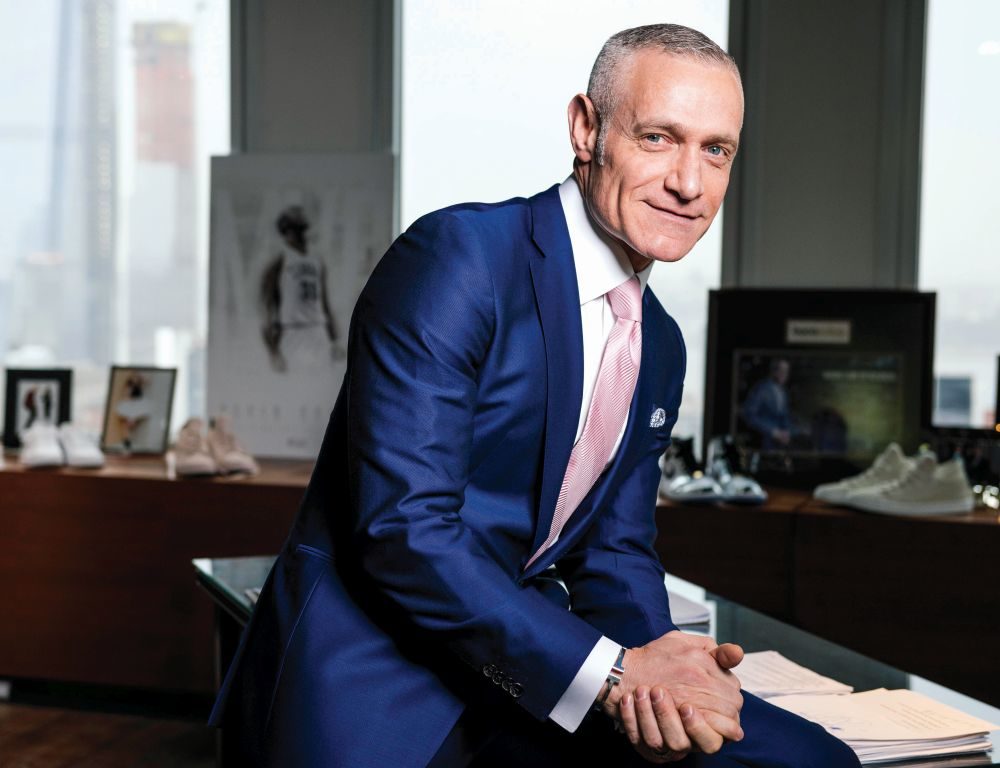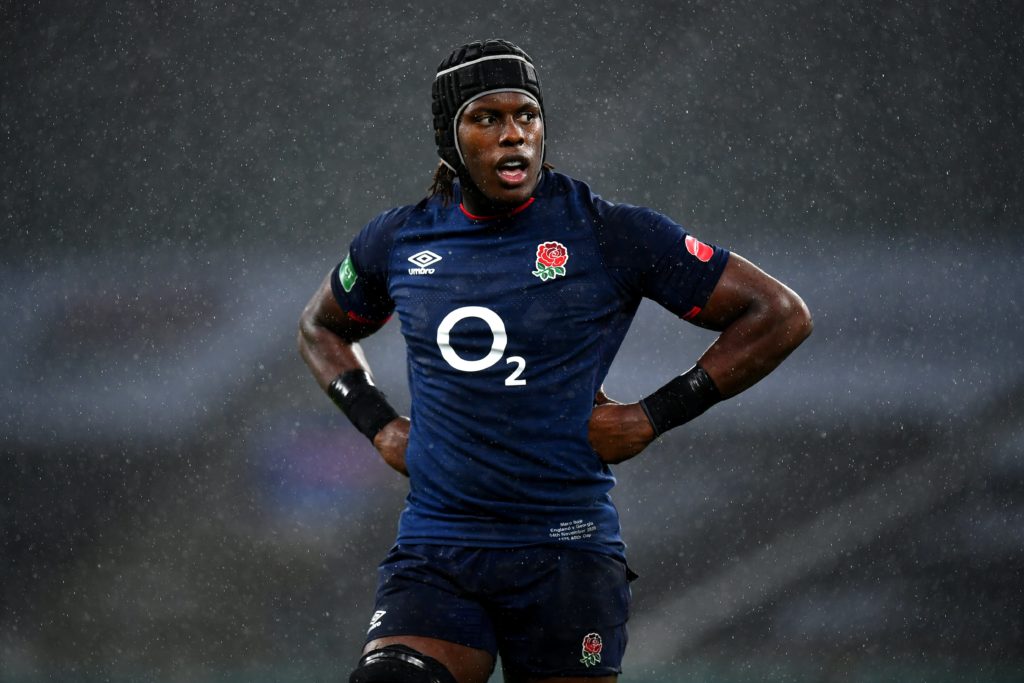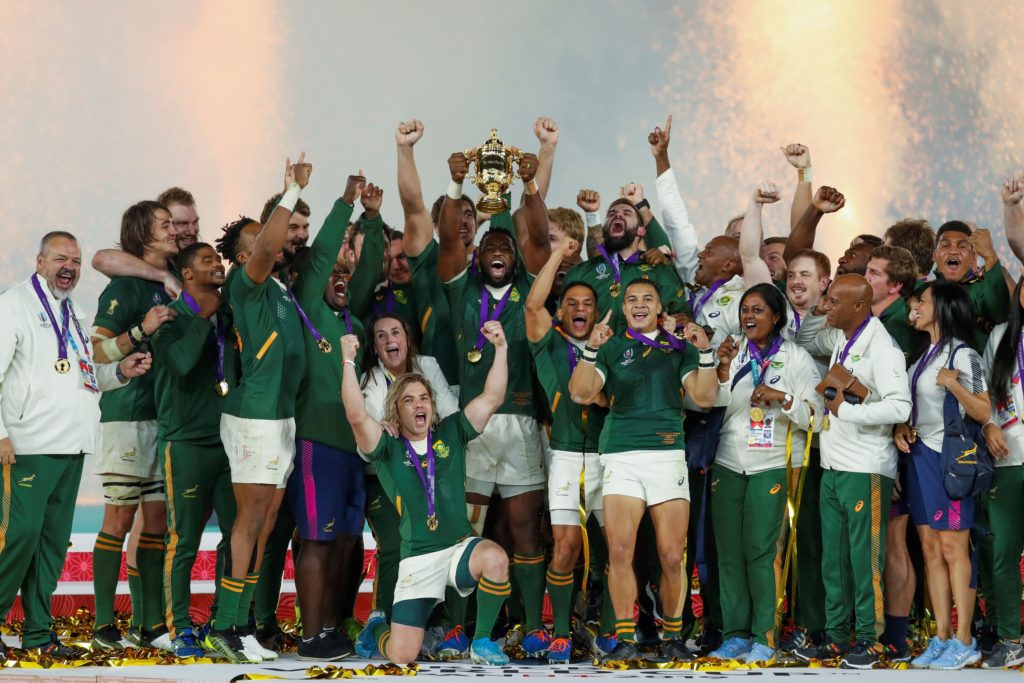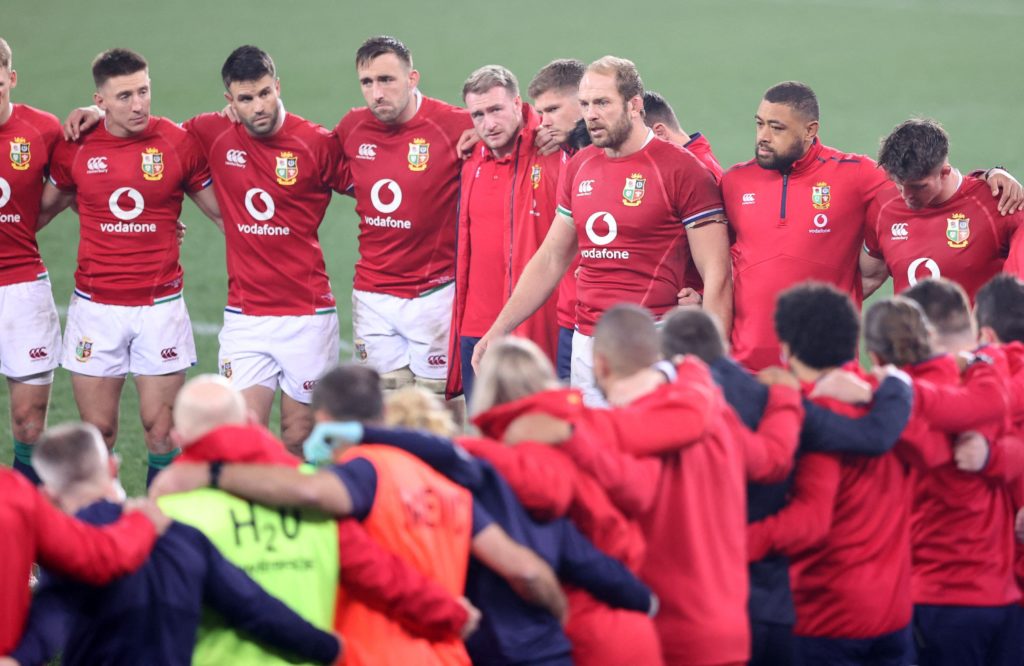Rugby’s entertainment revolution is coming and Michael Yormark is the man hoping to light the fuse. “The United Rugby Championship (URC) is the league that will change the game,” the American and president of Roc Nation Sports boldly predicted this week. Some statement.
Yormark can certainly talk the talk, but he is also determined to walk the walk after taking Roc Nation – a company owned and founded by American rapper Jay-Z in 2008 – into the rugby sphere for the first time in 2019. Roc Nation’s influence in the game, it seems, is only going to grow.
They have some of the sport’s biggest stars – think Siya Kolisi, Cheslin Kolbe and Maro Itoje – as clients and not only do they plan on helping rugby’s eminent players, they also plan on improving the overall product.
Back in July, the URC – formerly the Guinness PRO14 and a new, 16-team competition which begins this Friday – proudly confirmed a new, strategic partnership with Roc Nation. Unlike the private equity firm CVC Capital Partners, Roc Nation do not have a financial stake in the URC. Instead, the two parties are working together to improve the competition’s marketing. Something its detractors would say is badly needed.

“Over the past two years Roc Nation has entered the rugby space through the representation of some high-profile players in South Africa but also in the UK with Maro,” said Yormark.
“After learning about the sport through our players and understanding where it needs to go and how it needs to be modernised, we wanted to assist.
“I had the opportunity, through CVC, to meet Martin Anayi, the chief executive of the URC, and I was really taken with his vision to do things differently and create a league committed to entertainment and giving players a voice. We want to be big and bold and break down boundaries.
“Roc Nation is a company that stands for all of that so this was an opportunity for us to take the game to the next level while helping our players grow. I think it can lead the modernisation of the sport.”
How do you make rugby cool? You have to build the story of these players off the field. A lot of these players journeys are very impressive.
Michael Yormark
The professional sides of Wales, Ireland, Scotland and Italy have long faced each other in domestic competition, but the structure within which they have played has regularly been tinkered with.
Its different names have included the Celtic League, the PRO12, the PRO14 and now the PRO16, while a plethora of different sponsors have come and gone.
For the 2021-22 campaign, we have the URC with South African sides Vodacom Bulls, Cell C Sharks, DHL Stormers and Emirates Lions coming on board full-time.
One can only hope it is the start of some stability in terms of competition format because no league can have any hope of growing if its foundations are routinely shaken.
With some long-term roots in place, Yormark has grand plans for the URC and he wants to put the players front, middle and centre of the showpiece and revolutionise the fan experience.
“How do you make rugby cool? You have to build the story of these players off the field. A lot of these players journeys are very impressive,” he said.
“We also need to look at the live experience. When fans are going into stadiums, they need to see something a bit different. We’ve got to understand rugby is entertainment and when fans walk into a stadium, they’re not just there to see a rugby match.
“Music and fan-engagement opportunities are great examples as is the concept of turning the sport into a show. These are all things the URC are working on behind the scenes and you’ll see them being slowly rolled out.”

Despite Yormark’s North American chutzpah, he concedes that not everything might not work from the off. “It’s trial and error, but we have to be committed to changing the way people perceive rugby. We can absolutely make it cool one step at a time,” he said.
A cynic might pipe up at this point and make a sarcastic joke about Jay-Z or his wife Beyoncé appearing live at Rodney Parade or Kingspan Stadium in the months to come. But this is not the time for cheap gags.
Rugby as an entity must improve its marketing and commercial appeal and the URC are already playing catch-up with the Gallagher Premiership, the Top 14 and the international game when it comes to these revenues.
“We want to expand the fan base and, as I’ve said, I think what is going to be a really important catalyst is giving the players a voice and a platform to not only grow their brands, but to grow the brands of the clubs and the league,” said Yormark.
Having worked with the New York Yankees, Florida Panthers and Tampa Bay Lightning in the past, Yormark knows a thing or two about what it takes to make a splash in sport’s crowded marketplace.
There was a headline in the media recently where the URC, the NBA and Jay-Z all appeared together. Who would ever have thought those three things would all be talked about together? That’s where we have to take this sport.
Michael Yormark
“If you look at successful leagues around the world, storytelling has be a big part of the marketing behind clubs, leagues and players. They are inspirational and motivational and can help attract the next generation of fans,” said Yormark.
“Building a player’s profile is critically important to the future of the sport but will also help the clubs and the league expand their business as well.
“There was a headline in the media recently where the URC, the NBA and Jay-Z all appeared together. Who would ever have thought those three things would all be talked about together? That’s where we have to take this sport.
“We have to make it youth orientated, and develop stars, heroes and personalities and we have to be brave doing it. We can’t be married to the old traditions. We have to respect them, of course, but also understand we have to take a step forward.”
Rugby’s traditional team ethos and the overarching idea of no individual being more important than the collective is one which is at odds with Yormark’s drive to highlight its stars.
But it is also something which is already permeating the game. The rags-to-riches story of South Africa captain Kolisi gained global prominence after he led the Springboks to a 2019 World Cup triumph.

It was a tale to get the marketing men licking their lips and made Kolisi – who will play in this season’s URC with the Sharks – a wealthy man.
“I had the opportunity after the last World Cup to meet Siya,” added Yormark. “I remember so vividly watching him raise the trophy in Japan and giving such an eloquent speech about what that moment meant to his country. We felt at that moment that Roc Nation could help him inspire and motivate not only people in South Africa, but also around the world if we could tell his story.
“That’s where it all started. Our company had been doing music business in South Africa for some time but not in sport until we signed Siya.
“Roc Nation tell stories. That’s why we got involved in the sport and I’ve also been linked to the Sharks in Durban with their US-based consortium. That took us a bit deeper.
“We had an opportunity then to meet Maro in England and he joined us just over a year ago. It has been an evolution.”
One problem the URC have routinely faced in terms of generating interest is that the leading players from their sides rarely feature in the competition.
Rugby’s ongoing club-versus-country battle is nothing new, but the reality for as long as many can remember is the star names from Ireland, Wales and Scotland are more often seen in the cloth of their country than their domestic side. Alun Wyn Jones and Johnny Sexton fall squarely into that category.

The URC have made a most-welcome drive to avoid their match weekends clashing with Test rugby this season, but things are still far from perfect.
The 2021-22 campaign will start this weekend with Kolisi and others on Test duty with South Africa in the Rugby Championship. The northern hemisphere’s leading players who featured for the British & Irish Lions this summer won’t begin the season either. Rugby’s system does not help itself and this problem isn’t one the URC is battling alone. England’s Premiership will also be without Eddie Jones’s stars for long periods this term.
“From a marketing standpoint we need to make these great players synonymous with the URC and whether they’re playing or off with their international teams, it really shouldn’t matter,” said Yormark optimistically when questioned about the absence of URC stars from domestic action.
“Players need to do a better job of being great partners for the clubs. When they’re not playing, they have to be leaning in, assisting, and helping with the marketing efforts of the clubs. It goes both ways. That’s why we call it a partnership.”
Yormark, rightly, acknowledges his desire for change won’t happen overnight. Rugby – a game which has been professional for less than three decades – must change its ways if it is to stay relevant in an increasingly saturated market. Players and coaches need to be willing to promote their own brands.
People who have been used to doing things a certain way for so many years are sometimes reluctant to change. We have to show them what impact an expanded fanbase and more commercial opportunities can have on their business.
Michael Yormark
In England and Wales, there is most definitely a wariness among the top talent of clickbait and sensationalist journalism, which is viewed as nothing but counterproductive to the individual concerned. That is understandable, but the argument it would be better to say nothing and not engage with the media at all means nobody wins. Yormark’s call for change should not fall on deaf ears.
“We’ve been talking about the modernisation of the sport and I think all clubs, whether they’re in South Africa or in the northern hemisphere, have to look at how they’ve been marketing themselves and conducting their business,” he said.
“They need to think, ‘How do we take the next step and how do we modernise?’ It’s a process and it won’t happen overnight. People who have been used to doing things a certain way for so many years are sometimes reluctant to change. We have to show them, step by step, what impact an expanded fanbase and more commercial opportunities can have on their business.
“The URC need to show the clubs the direction they want to take this competition is actually good for their business. If they can demonstrate that in a tangible way, it’s a no-brainer and everyone will jump on the bandwagon.”
If you’ve enjoyed this article, please share it with friends or on social media. We rely solely on new subscribers to fund high-quality journalism and appreciate you sharing this so we can continue to grow, produce more quality content and support our writers.



Comments
Join free and tell us what you really think!
Sign up for free